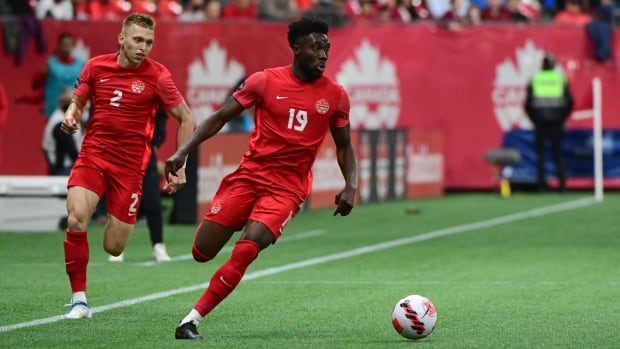British Columbia approves 2.5% lodging tax in Vancouver to help city pay to host FIFA World Cup
Beginning February 1, booking a room at a Vancouver hotel, Airbnb or vacation rental by owner (VRBO) will incur an additional 2.5% tax as the city seeks to generate revenue to host the 2026 FIFA World Cup.
To help offset accommodation costs, the BC government and Destination Vancouver have agreed to a temporary tax rate on short-term accommodation sales for the next seven years.
Revenue from the temporary tax hike – known as the Regional District Major Event Tax – will be used to fund the planning, staging and hosting of the football tournament.
The City of Vancouver petitioned the provincial government for the tax hike last fall, saying the city should operate “above and beyond normal city service levels” for the World Cup.
Revenue from the Major Events Tax will be used to offset the costs of staff, security, venues, resources and training venues.
Vancouver and Toronto are among 16 North American host cities and will host 10 of the event’s 70 games.
The British Columbia government previously imposed a major event tax to fund the 2010 Vancouver Olympics.
Communities can also seek approval from the Ministers of Tourism and Finance for such a tax through Destination BC.
It can be applied in addition to an existing accommodation tax already in place in more than 60 regions of the province which funds tourism marketing, programs and projects.
“I think that’s pretty reasonable,” the Vancouver Coun said. Pete Fry. “These are modest fees attached to the hotel and short-term rental stays that will help offset some of the cost demands we will have with an event like FIFA.”
Fry tells CBC that the increased revenue from tourism will spare Vancouver residents the significant costs of hosting such a high-level event.
Hospitality and tourism sector on board, says Minister
British Columbia Finance Minister Katrine Conroy says the rate was determined in consultation with Vancouver’s hospitality and tourism industry.
“They all agreed after long discussions that there will be hundreds of thousands of people coming to the city, so it will boost tourism and help them.”
The BC Hotel Association was not available for comment.
Peter Milobar, BC Liberal MP for Kamloops-North Thompson and opposition finance critic with a background in the hospitality industry, says he can imagine the sector accepting the tariff, but says he has concerns about the schedule.
“They want to make sure it’s not just an unlimited amount of money that keeps adding up in terms of costs, cost pressures, or how long taxes are in place. .”
Conroy says hotel industry representatives initially had concerns about the delay. The province estimates the tax will generate about $230 million.
“There was an agreement that it would be applied over seven years, and there is also an agreement that if this amount of money is committed before the seven years, the tax will end.
“Inflation has gone up, so we think the estimates could be a bit higher, but we’ll see,” Conroy said. “We know costs could increase with more detailed planning.”


Comments are closed.